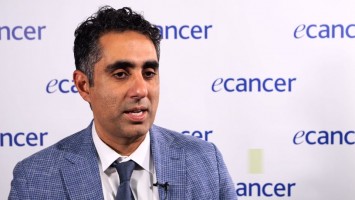Thank you all for being here and putting a spotlight on this very important issue – life after cancer. This survey is the result of a great collaboration between the two societies, the European Society for Medical Oncologists and our colleagues from the paediatric oncology field. We took advantage of the membership list of both societies and we delivered a link to the inbox of our colleagues to a survey of 32 simple questions. We asked them information about their demographics, their professional background, their clinical practice, their challenges that they face in the care of young individuals with cancer and after they’re cured of cancer. We focussed finally on the educational needs that they would like ESMO and SIOPE to provide to them.
This slide illustrates the main results of this survey. As you can see, two-thirds of the respondents do not have access to specialised centres for the care of this population. Two-thirds of them do not have access to clinical trials that would help them to advance the care for these individuals and the same, a two-thirds percentage, do not have access to a specialised centre that could treat the patients for all their late effects of cancer treatment.
We are very happy because almost all European countries have been represented in this survey. I’m going to show you some of the results; the full presentation, of course, is on Monday and I already have the paper. This is a very important question – fertility concerns are a priority both for the physicians and of course for their patients, as you can see. Across Europe 40% of physicians do not have access to a fertility specialist who will take care of this very important issue for the patients.
The answers to this question concerned us a little bit because the respondents do not seem to be very well aware of the great educational material that is available through the ESMO and SIOPE websites. 80% of them say that they do not have access to educational training courses. I think we have to work a little bit harder to advertise all the modules available by ESMO.
We showed that to these three questions there was a discrepancy across Europe but I don’t think that this is the main result of this survey. Even from the countries that we got the best score for yes, like countries from North and Western Europe, it was not higher than 50%.
Before thanking you I want to say that we didn’t get only negative answers from this survey, we got some responses that put a big smile on our faces because the respondents seem to understand very well the late effects of treatment. That’s why they counsel their patients to quit smoking, to eat healthy, to exercise. They promote HPV vaccination, mostly for their female patients. I was very happy to see that they are very well aware of the hereditary syndromes that predispose to cancer and they do have access to clinical and genetic services.
So thank you very much and I will be happy to take your questions.








